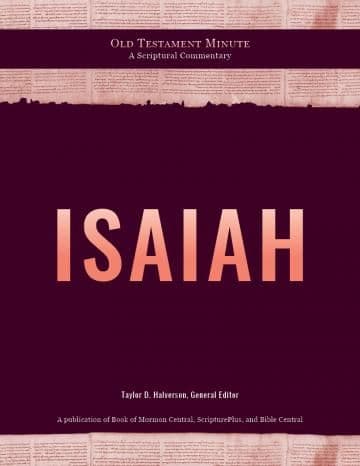Book
34 Chapters

21:1. Babylon may be the subject of this prophecy (see verse 9). That kingdom rebelled against Assyria between 715 and 702 BC, which may have offered encouragement to Judah and others.
In these verses, Isaiah describes impending doom. Smothering, hot windstorms blow from the desert and are so common that they have been named hamsin in Hebrew. This weather pattern is still a problem today.
21:2–4. This section describes Isaiah’s feeling at the sight of this vision. In verse 3 he again likens the pains to “those of a woman in labor.” He is staggered and bewildered and suggests that fear makes him tremble. The reality of warfare seems to have touched him deeply: “the twilight I longed for has become a horror for me” (verse 4). The unthinkable has happened.
21:5–9. It is unclear who is being referred to in verse 5 when it says people will get up and oil their shields. However, the implications are clear: “prepare; there’s a battle coming!” A scene is described where a lookout mans the watchtower. This may be a reference to prophets, as prophets are the watchmen on the towers in Ezekiel 33:6–7. Verse 7 says, “Let him be alert, fully alert.” And in verse 9, he cries out, “When a man approaches in a chariot with a team drawn by horses and calls, ‘Babylon has fallen, has fallen.’ All the images of its gods lie shattered on the ground.” This is another example of the people’s belief that their gods either won or lost battles for them. The chapter finishes with a prophecy against Edom.
21:11. Dumah is an oasis three hundred miles southeast of Judah in northern Arabia that stood at the crossing of the east-west road from Petra to the Persian Gulf, and the north-south road from Syria to the Red Sea. Mount Seir is a plateau whose name is often used to represent Edom. Someone from Edom is represented as calling to the “watchman” in Judah, likely referring to Isaiah.
21:12. In Isaiah’s time, the watchmen upon the walls took three night watches: “the beginning of the watches,” sunset to about ten o’clock p.m.; the middle watch, from about ten o’clock p.m. to about two o’clock a.m.; and the morning watch, from about two o’clock a.m. to dawn. In this verse, the morning watchman calls out the coming of the dawn and warns against coming night.
21:13. Arabia was mostly desert, where caravans camped and crossed.
21:16. Note that it is God that wins. The Babylonians’ gods are on the ground (see verse 9). Jehovah, the God of Israel, wins the battle.
Book
34 Chapters
Items in the BMC Archive are made publicly available for non-commercial, private use. Inclusion within the BMC Archive does not imply endorsement. Items do not represent the official views of The Church of Jesus Christ of Latter-day Saints or of Book of Mormon Central.